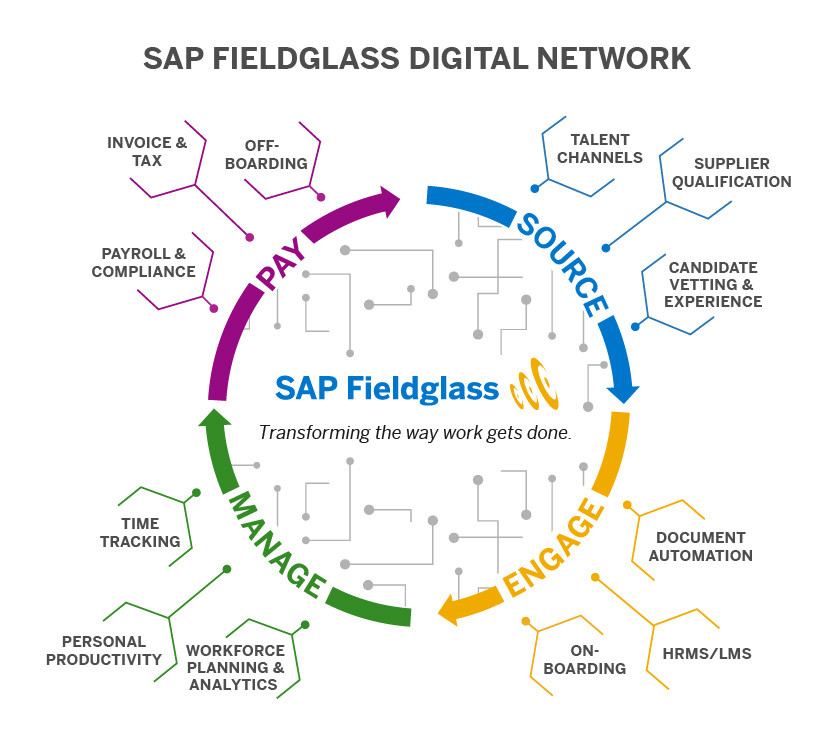This page is a running thread of gig economy news, in chronological order, newest at the top. This sections is a few words of explanation about how this page works. Scroll down to the picture below get right to the latest gig economy news.
Topics we’re tracking include:
- industry news about freelancing
- regulation, government policies and employee classification
- new products and services for freelancers; investing and M&A news about companies in the gig economy
- new freelance studies
- new freelance marketplaces
This page is also a trend watch that includes early signals about what is coming in the gig economy and the changing freelance workforce.
The gig economy news covered here is global. Dates are in U.S. style mm/dd/yy.
The newsletter signup at the bottom of the page gets you an occasional digest of this gig economy news in your inbox.
Vendors and other companies, see the note at the bottom of the page about submitting your gig economy news.
Gig economy trends we’re watching
- The lines between W-2 and 1099 are blurring
- W-2 workers are acting more like freelancers.
- Role-based jobs are looking more like freelance work.
- Employers want recruiters and platforms to source both W-2 and 1099 talent.
- Government is starting to pay more attention.
- Extending W-2 based benefits to 1099s.
- Extending W-2 based regulations and protections to 1099s.
- Services and products for freelancers (B2C) are growing; services and products for sourcing and managing freelancers (B2B) are growing.
- The competition to be the leading payments platform for gig work is just beginning.
- The matchmaking market is getting saturated.
- Government is starting to pay more attention.
- Businesses don’t have a talent strategy for 1099s. They have a collection of accidental procedures. The B2B talent strategy market is just beginning to account for freelancers.
- Freelancers are coming together in communities, unions and lobbying groups.
- New technology applications are being applied to the freelance market:
- Blockchain
- Cryptocurrency
- AI
Latest gig economy news
Office perks are a fad. Remote work matters more. – Talent solutions company Yoh has a new survey out of employees asking how likely they are to leave a job and what would make them leave. Workers would strongly consider jumping ship for a workplace with remote work options. They don’t care much at all about on-site daycare, gyms, dry cleaning or baristas.
Our view: No shocking news here to anyone reading the multiple other workforce surveys we’ve gathered. Like we’ve said, every 1099 worker is a former W-2 from a company whose employee retention efforts failed. Flexible and remote work options are where they are failing.
-4/14/18
New freelance job aggregator – Colibro, a Toronto-based startup that makes financial planning tools for freelancers and small businesses, has added a search function aggregating freelance gigs from multiple sources. Unlike Ditch the Office (see March 6 below), Colibro doesn’t pull jobs from the big freelance marketplace sites but from other traditional and “remote” job boards that have freelance jobs hidden in them.
The founders tell me that the advantage of that is that when the freelancer sees a promising gig, they aren’t landing at a site where they have to establish a new profile, portfolio and work history. -4/5/18
DocuSign files for IPO – E-signature SaaS company DocuSign, which many of us know and use for freelance contracts, is going public, possibly in late April according to several news reports. -4/1/18
Gig economy news for March 2018
New surveys: Many freelancers thriving . . . or not – Three new surveys out. I have fuller detail from each of these in our roundup of freelance statistics.
First, Wisebrand, a company creating marketing tools for micro businesses, published a new State of the Freelance Nation survey that confirms that freelancing is becoming a long-term and stable career path. The average freelancer hits their financial goal is 23 months.
Second, the annual Marketplace-Edison Research economic anxiety index poll includes questions about gig workers and finds that economic anxiety is higher in this group.
Third, APAC region talent services company PERSOLKELLY surveys hiring managers in 10 countries and finds a growing expectation that people will be looking for contract-based work. -3/14/18
Nudging gig workers to save for retirement – A new academic paper from Hal Hershfield (University of California, Los Angeles), Stephen Shu (City, University of London) and Shlomo Benartzi (University of California, Los Angeles) summarizes an experiment to see if freelancers could be encouraged to save more for retirement.
The experiment ran on a personal finances app and found that “framing deposits in daily amounts as opposed to monthly amounts quadruples the number of consumers who enroll.” This psychological effect was strongest with low-income earners and thus narrowed the participation gap between low- and -high-income earner.
By the way, you should definitely be saving for retirement as a freelancer. – 3/8/18
Survey of freelancers on payment systems – Payment issues are likely to increase churn on gig economy platforms, according to a new global survey by B2B payment processsing vendor Tipalti. U.S. freelancers prefer bank deposits. Non U.S. freelancers prefer Paypal and want it in their local currency.
Singapore extending employment benefits to freelancers – The government of Singapore is considering and appears on track to accept a package of regulatory recommendations that would extend benefits and protections for employees to “self-employed persons.” The regulations cover areas like dispute mediation, health insurance, disability insurance and training. 3/7/18
SAP’s new vendor management for freelance workforce – SAP Fieldglass, a vendor management system from the enterprise software giant, has a new Digital Networks ecosystem intended to let employers improve how they source, engage, manage and pay gig economy talent through multiple channels. You’ll see many of the freelance and consulting marketplaces that we’ve been writing about in the new open network.

My take: I like the concept here, and it’s definitely addressing a need. I’ve been arguing that the biggest drag on the freelance economy right now is that employers don’t have a real talent strategy for 1099s; they have a collection of accidental procedures. SAP’s model for this clarifies the problem quite a bit. -3/7/18
Series A for Paro – Paro, a niche freelance platform for finance and accounting professionals, has raised $5 million for its series A and plans to double its headcount.
More about Paro in our list of specialized websites for consultants.
New competitor for Paro – Phlexable is a new startup that also matches finance and accounting professionals with freelance gigs.
New app for gigging teens – Skratch matches teens with nearby adults with on-demand odd jobs — setting up your tech, schoolwork help, event support, pet care, teaching your kid how to pick and roll . . . teaching you how to pick and roll. One of the basic rules is no power tools, so that leaves out most lawn care. Dallas area only for now.
New “remote jobs” aggregator – Ditch the Office is a new site launched last week that aggregates listings for remote jobs from several job boards. It includes both role-based/W-2 based jobs that are remote and freelance gigs, and you can sort for each, along with sorting by skill or profession. The idea is to have one search engine that scans through FlexJobs, Simply Hired, Stackoverflow, Freelancer, Guru and all the rest. The founder tells me that Upwork and other boards will be added soon. -3/6/18
Gig worker union – Couriers in Great Britain who serve laboratory and medical organizations have formed what is thought to be the first union for gig workers in that country. They are negotiating for many of the benefits associated with permanent jobs including parental leave, sick leave and protections against dismissal.
New block and coin offering — ConnectJob aims to use a blockchain to address problems of identify verification and phony reviews in the freelance marketplace and has an initial coin offering out to fund it. This is about third or fourth of these we’ve seen in a month. (See below.) -3/5/18
Little profit in driving for ride hailing apps – An academic paper from the MIT Center for Energy and Environmental Policy Research calculates that after expenses and depreciation drivers for Uber and Lyft only profit $3.37/hour.
Commercial real estate watching freelance market – This isn’t just about more work spaces for freelancers. It’s about W-2-base work designed to feel like freelancing. According to JLL Capital Markets, “Last year, the real estate sector also saw a number of high-profile investments into the flexible working space . . . . as more big corporates embraced co-working and flexible work arrangements. Microsoft, for instance, has opted to house 300 employees at two external co-working sites.” – 3/4/18
Ride sharing apps reduce entrepreneurial activity – A two-year-old academic study recently published online looks at the relationship between the introduction of a ride-sharing app in a community and the amount of entrepreneurial activity in that community. It finds that when Uber X comes to town there are fewer successful Kickstarter campaigns and new unincorporated entrepreneurial ventures. -3/2/18
Gig economy news for February 2018
Research report on the U.K. gig economy – The House of Lords library, the research arm of the U.K. parliament, is publishing research reports on the gig economy. Part 1 has demographic information and economic projections. Part 2 covers employment law for different employment categories such as self employed vs. employee. -2/20/18
New banking platform for freelancers – Azlo, an online bank and financial services company that is specifically marketing to freelancers and the self-employed, went live today. Part of their pitch is no minimum balances and no fees, including for ACH, international transactions and foreign ATMs. It also has invoicing tools built in and integrations with Stripe and Square. -2/15/18
Gigging as career opportunities for the economically displaced – A charity in Germany is developing a program that matches people in severe economic need — refugees — with the opportunities created by remote and flexible work in the freelance economy. Project CORE from the International Rescue Committee, with funding support from the Intel Foundation, trains people resettled in Germany in computer programming. “Having strong computer skills means that refugees who have other commitments at home or need flexible hours can join international companies or the gig economy,” according to a profile in Fast Company. -2/14/18
MBA classes for freelancers – Here’s another in the trend of university-level courses for career freelancing that we’re watching. A Babson College MBA adjunct instructor has been running a course on Entrepreneurship and the Gig Economy. Diane Mulcahy says shes “spends much of the class questioning students’ typical ideas of job security and stability, talking with them about what the gig economy means for their careers and planning how they can best set themselves up for a thriving career as a freelancer,” according to a profile in Poets & Quants for Undergrads. -2/13/18
Community workshops for freelancers – The Carnegie Library of Pittsburgh is holding a “side hustle lecture series” during February for people who want to learn more about consulting or other gig economy work.
Gig economy data forum – The Aspen Institute Future of Work Initiative, The Cornell University School of Industrial and Labor Relations and the Rockefeller Foundation convened a round table of experts to discuss challenges collecting data and statistics about the gig economy. As we’ve noted in our own roundup of gig economy data, one of those challenges is the variable definitions of contingent, temp, gig, freelance, consultant and independent contractor. Aspen also has a data hub project on the gig economy that is expected to be live early this year. -2/12/18
New gig worker rights regulations in the U.K. – The Business Secretary’s office of the U.K. government has announced a package of administrative reforms to reinforce the rights of gig economy workers related to overtime, holiday pay and sick pay. -2/7/18
Retirement benefits for freelancers – The U.S. Senate Health, Education, Labor and Pensions Committee’s subpanel on primary health and retirement security held a hearing Feb. 6 on ways to extend retirement benefits to independent contractors. Some of the ideas presented in expert testimony included rules to let companies extend benefits to a broader group beyond their employees, expanding Social Security, and multi-employer plans that let employees maintain one plan between employers. (via Kaitlin Milliken at The Hill.)
My take: Two of those ideas presume an employer/employee model and try to adapt it to this new context. Don’t forget that many freelancers get their gigs peer-to-peer from other individuals who won’t have retirement plans to extend, and don’t forget that many people in Nation1099 are “freelance native.” They don’t have old retirement plans to port anywhere else. Also, ahem, SEP-IRAs. Better consumer awareness about that existing option would go a long way.
Women earn less on driving apps – Economics researchers at Stanford have dug into driver-side user data from Uber and have drawn some interesting conclusions about the seven cent pay gap between men and women. Short version: men rack up more experience and therefore learn to optimize how they use the platform, cherry picking the best working hours and locations. Also they drive faster and therefore pick up more fares.
Coworking spaces are market movers in London real estate – Cushman Wakefield has a new study of the impact of coworking on the U.K. real estate market. In central London, flexible work spaces occupy 4 percent of the office space stock, doubling in the last 1o years. One of the structural changes driving this is the growth of freelancing. They also note a growth in hybrid models that blend shared/unallocated space formats with traditional serviced office formats. -2/6/18
Another college program on building freelance career skills – A business department instructor at Sierra College in Rocklin, California organized a half-day workshop for people interested in developing career skills needed in the freelance economy, such as marketing, tax deductions and defining a scope of work. Professor Natasha Palumbo says the 20-student pilot is also providing ongoing mentorship and networking through the rest of the academic semester. (See College of Marin below for a similar example.) -2/5/18
Related reading: How to Write an Effective Freelance Scope of Work
Uber for going to the office – A Sony-affiliated virtual reality researcher in Japan demonstrated his invention called “Chameleon Mask,” or human Uber, which allows you to hire a surrogate who wears a screen displaying your face on their face so you can attend meetings remotely. -2/1/18

Employee classification – Uber gets a ruling in its favor in South Africa on the classification issue, according to Uber.
Gig economy news for January 2018
Smart contracts (and maybe tokens) for freelancers – The founders of Eathernal announce the launch of their peer-to-peer network designed for freelancers that attempts to improve trust and payment issues using smart contracts. The company is being partly funded by an initial coin offering. I get that. I don’t understand yet how the tokens then are used in the network. (Hey, Eathernal team. Get in touch and explain it to me.) – 1/31/18
Fintech startups are developing products for the freelance market. Two announcements in one day on this topic. Zayzoon and PUSH Payments announced a partnership to create a real-time “payroll” service that employers can extend to both their W-2s and their independent contractors. Think of it as on-demand pay for on-demand work. -1/30/18
Payfare and i2c are launching a payments service for gig economy workers. It seems to be targeting ride-sharing companies and lets them load payments for drivers onto prepaid cards.
Fintech incumbents too! Mastercard announced a new suite of products and other activities that touch on gig work. They have some real-time payment projects with individual companies, and they are running financial literacy workshops in some communities particularly for gig workers.
Reputation management for freelancers – Blockchain technology is starting to be applied to reputation management for freelancers. FundRequest has announced a partnership with Dock.io and Remote.com that will allow users of that freelance platform, particularly freelance developers, to validate their skills to prospective clients using the advantages of a distributed ledger. -1/29/18
The portable benefits movement – At least one labor leader is working with ride-sharing companies to grow the portable benefits movement. SEIU 775 (Seattle area) President David Rolf has signed a letter with Uber and its funders in support of a Washington state bill that would require businesses to extend employee benefits to independent contractors. Via Seattle’s The Stranger – 1/26/18
New freelance marketplace – Spry is a new app-based platform matching PR freelance talent with on-demand basic assignments that launched today. The emphasis is on basic jobs and small budgets. iOS only for now, Android to come. -1/25/18
Legislation for freelancers – Congresswoman Eleanor Holmes Norton (D-DC) says she will introduce a bill to apply federal anti-discrimination protections to independent contractors. -1/24/18
How marketers see freelancers – TaxAct, a competitor to online tax prep companies like TurboTax and H&R Block, is starting a series of ads particularly emphasizing gig economy workers.
New talent management software – ADP, the HR software company that you may know best for its payroll management services from your 9-5 days, has acquired WorkMarket, a software company that integrates the management of W-2 and 1099 workers. -1/22/18
What’s next? A college major in freelancing? The College of Marin in Marin County, California is offering a three-course professional certificate for freelancers. The “Gig Economy Career Pathway” includes business courses on entrepreneurship, marketing and self-employment strategies. – 1/17/18
Retirement accounts for freelancers – In Great Britain, the Pension Advisory Service is launching a campaign to raise awareness about retirement savings among freelance professionals, gig economy workers and the self employed. The campaign is intended to address comparatively low participation in retirement plans among freelancers versus traditional employees.
Related reading: The SEP-IRA explained — Retirement Planning For the SoloPrenueur
Does your organization have gig economy news or announcements of interest to freelancers, consultants and independent contractors. No promises, but I’ll consider including new announcements on issues like those covered above. I strongly prefer having a URL to link to (i.e. PDFs aren’t that helpful except for fuller context), so send me the address to where your press release can be found or, even better, to where an authoritative independent journalistic source has written about this subject recently. We do consider guest posts from companies serving freelancers.






